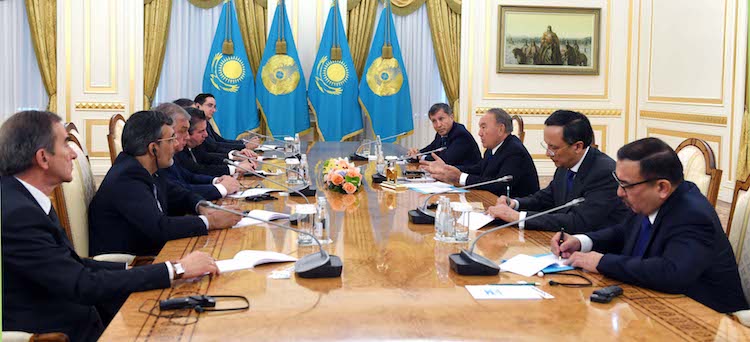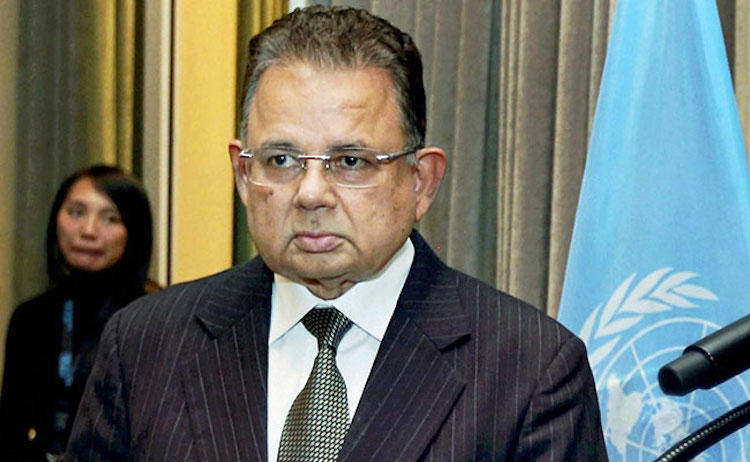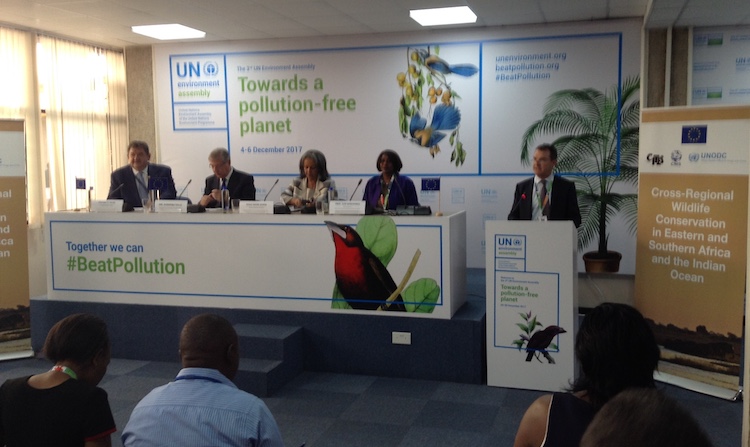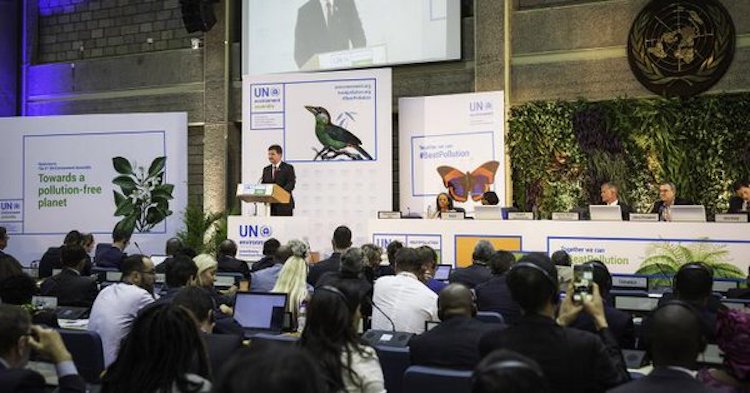By Jaya Ramachandran UNITED NATIONS (IDN) – As Kazakhstan prepares to chair the UN Security Council for the month of January 2018, the Central Asian country’s contribution in the process of de-escalation of the nearly seven-year old conflict in Syria has been commended during Foreign Minister Kairat Abdrakhmanov’s recent visits to London and Vienna. The […]
Re-election of India’s Nominee to the World Court ‘Historic’
By J Nastranis NEW YORK (IDN) – India has scored a “historic” victory over Britain, one of the five permanent members (P5) of the Security Council, with the re-election of Justice Dalveer Bhandari to the International Court of Justice (ICJ), principal judicial organ of the United Nations. The win is historic because it’s the first […]
Sparkle of Hope Fast Disappearing in Post-Mugabe Era
By Jeffrey Moyo HARARE (IDN) – When Robert Mugabe resigned late November as president of Zimbabwe, hopes were rekindled that the country would finally be set on the course of a fresh start after 37 years of widely criticised authoritarian rule of this Southern Africa nation. For years, under Mugabe’s regime, the Southern African nation’s state […]
Nobel Peace Prize for ICAN Puts Pressure on Norway to Sign the UN Treaty
By Nina Berglund The writer is editor and publisher of Norway’s news site, newsinenglish.no. This report, which originally appeared with the headline Peace Prize puts squeeze on Norway, is being reproduced courtesy of the news site. – The Editor OSLO (IDN-INPS) – Nobel Peace Prize Day in Oslo dawned with clear and sunny skies on […]
EU & UN Aid African Countries in Fighting Wildlife Trafficking
By Justus Wanzala NAIROBI (IDN) – African and Asian countries face a huge challenge in protecting their wildlife from the illegal killing and trafficking that has already endangered some species. Over the years, national and regional efforts to combat the threat have met with mixed success and wildlife and their products continue to be sold […]
UN Fears Middle East Engulfing into the ‘Vortex of Religious Radicalism’
By Santo D. Banerjee UNITED NATIONS (IDN) – U.S. President Donald Trump’s decision recognizing Jerusalem as the capital of Israel has been widely welcomed in Israel but it has also caused much anger among Palestinians and anxiety across the Middle East and beyond – at the United Nations too. On December 6, Trump announced that […]
UN Environment Assembly Galvanises Nations to Act on Taming Pollution
By Justus Wanzala NAIROBI (IDN) – Amid a cacophony of voices, interests and expectations, the third high level United Nations Environment Assembly (UNEA), held in Nairobi from December 4-6, had a common denominator – a sense of strong desire and willingness among delegations for action to ensure a pollution-free world. Some walked the talk. Indeed, […]
Village Buddhist Monks in Laos Initiate Environmentally-Aware Development
By Toung Eh Synuanchanh This article is the 19th in a series of joint productions of Lotus News Features and IDN-InDepthNews, flagship of the International Press Syndicate. BEUNGSANTHUENG, Laos (IDN) – A quiet revolution is taking shape in rural Laos, where environmentally-conscious village Buddhist monks are teaching people morality and meditation to spearhead a movement mobilising the people […]
World Bank Explains Uganda Benefits of Ending Child Marriage
By Ronald Joshua NAIROBI (IDN) – With a new report, the World Bank is striving to put an end to child marriages in Uganda deploying a carrot-and-stick approach. Subsequently, the report titled ‘Accelerating Uganda’s Development: Ending Child Marriage, Educating Girls‘ argues that ending child marriage could generate $3 billion per year for the East African […]









